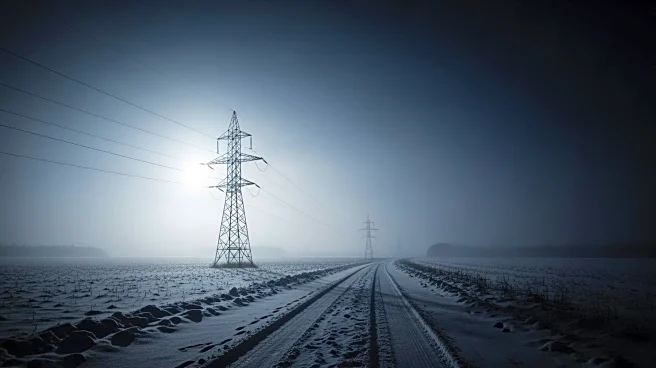What's Happening?
Russia has intensified its attacks on Ukraine's energy infrastructure, targeting specific regions and gas facilities. The strategy involves launching hundreds of drones equipped with cameras to improve targeting, overwhelming Ukraine's air defenses. The attacks have
led to power outages and disruptions in daily life, particularly affecting vulnerable populations reliant on electricity for medical treatments. The situation is dire in regions close to the front line, where residents face long hours without power or water.
Why It's Important?
The renewed energy assault poses significant challenges for Ukraine as it prepares for winter. The disruption of energy supplies threatens the well-being of millions, potentially leading to humanitarian crises. The attacks highlight Russia's strategic shift to destabilize Ukraine's infrastructure, aiming to weaken its resilience and morale. The international community's response, including potential aid and sanctions, will be crucial in supporting Ukraine's recovery and defense efforts. The situation underscores the ongoing geopolitical tensions and the need for diplomatic solutions.
What's Next?
Ukraine is likely to seek further international support to bolster its energy infrastructure and mitigate the impact of Russian attacks. The European Union and other allies may consider additional sanctions against Russia to pressure a diplomatic resolution. Ukraine's energy sector will need to adapt to the challenges, exploring alternative solutions to ensure power supply. The global community will be monitoring the situation closely, with potential implications for regional stability and international relations.
Beyond the Headlines
The attacks raise concerns about the humanitarian impact on Ukrainian civilians, particularly as winter approaches. The disruption of energy supplies could lead to severe living conditions, affecting vulnerable populations. The ethical considerations of targeting civilian infrastructure in conflict zones remain a critical issue. The situation may prompt discussions on international humanitarian law and the protection of civilians in armed conflicts.















